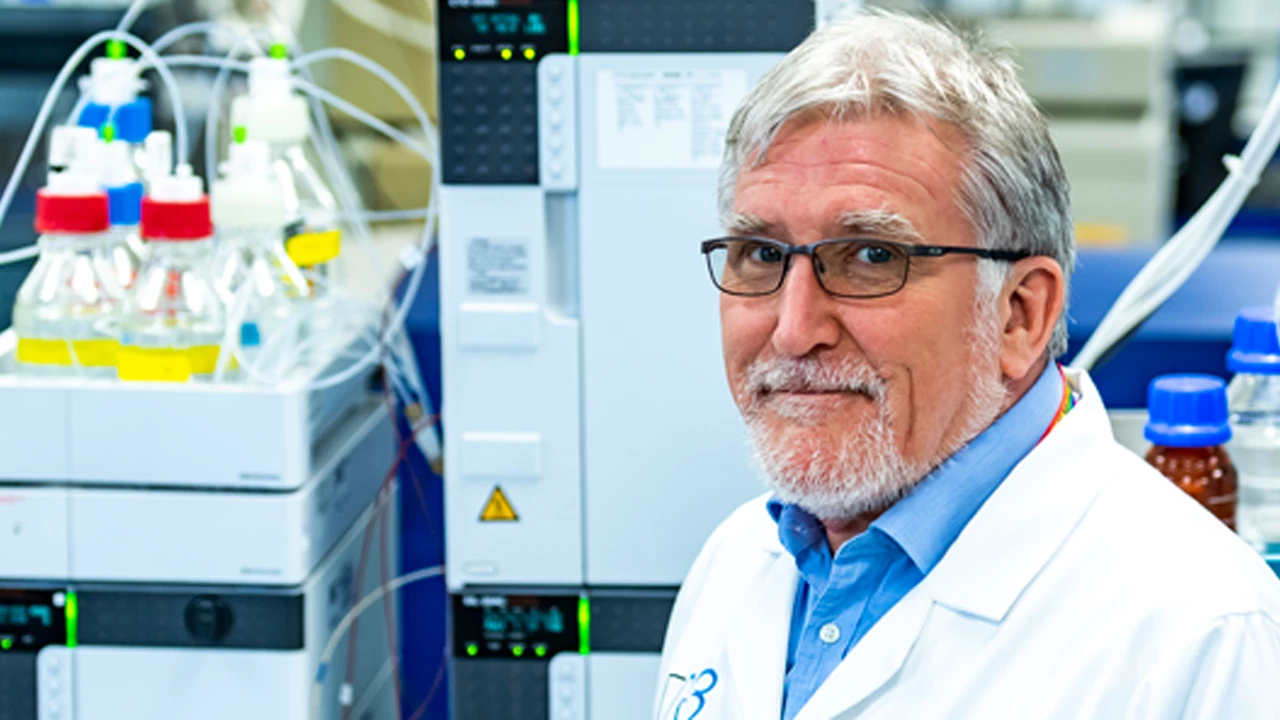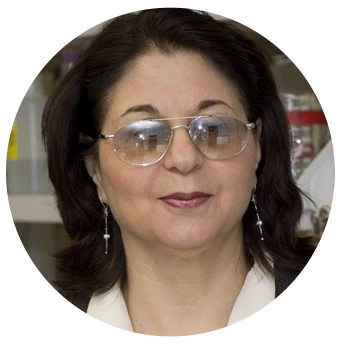
Lipidomics of Health and Disease
March 24-26, 2021 | 10:00AM EDT | 2:00PM UTC | 3:00PM CET*
*Program is in development and subject to change
Attention
The live portion of this conference has concluded and all presentations are now available for purchase on demand. Registrants to the live event may access this content anytime for up to 9 months following the event.
Free Access to On Demand Content to Scientists from Low-and Middle-Income Countries
Keystone Symposia welcomes the global scientific community and aims to connect researchers within and across disciplines to accelerate the advancement of biomedical and life sciences. This form may be used for scientists from low- and middle-income countries of all career stages to determine eligibility and request free access to scientific content presented during recent eSymposia events. If eligible, you will be sent an access code for the On Demand content of the eSymposia event(s) of interest.
Lipid metabolism provides the building blocks for cell growth and replication, signaling molecules that initiate and propagate signals inside and outside of cells, and fuel for cell function and division. The role of these molecular species in human disease has become more apparent with advancements in ability to detect and accurately quantify them. This meeting will integrate information generated through lipidomics studies. Specific areas of focus will include using genetic and proteomic data to identify changes in particular molecular species, the importance of changes in lipid metabolism and signaling and the regulatory enzymes for neurodegeneration, metabolic disorders, cancer and inflammation and immune responses. Featured talks will extend beyond methodologies to integrate the current biological and clinical importance of lipids with lipidomics approaches. This will allow us to focus upon the mechanistic importance of lipids in neurodegeneration and other neurological disorders, cancer, inflammation and metabolic disorders. By identifying enzymes that regulate changes in lipidomics, new targets for therapeutics can also be identified. This approach is inspired by PI3kinase, where the basic biochemistry has led to the development of effective inhibitors. We hope to discover other targets for lipid enzyme therapeutics. By moving towards lipid analysis and the biological and medical importance of lipid regulatory pathways, the goal is to use lipidomic profiling to get to better understand and treat different diseases. The majority of lipid related meetings focus on methodologies. We believe that PI3kinase should be reintegrated into meetings about lipid-related disease because it represents successful implementation of this approach. The PI3Kinase specific meeting is no longer attracting sufficient attendees but it remains an important scientific area for discussion. This meeting will also address the importance of particular lipid molecular as opposed to lipid classes. Modern lipidomic methodologies enabled us to identify more than 20,000 potential lipid species in a cell. There are particular species that regulate enzyme activities and membrane properties and thus functions like signaling and cellular migration. This meeting will include a workshop, led by members of LIPID MAPS, on lipidomics methodologies, data handling and storage to further emphasize the biological and medical importance of lipid diversity.
Pricing:
Regular Registration Rate: $275 USD
Student Registration Rate: $150 USD
Deadlines:
Abstract Submission:
‣ For Short Talk Consideration: Passed
‣ For Poster Booth: Passed
ePoster / SciTalk Submission: Passed
Financial Aid Application: Passed
*Abstract submission is required in order to submit an ePoster and/or Scitalk
#VKSLipidomics21
Michael Wakelam, 1955 - 2020

It is with very heavy hearts that we say good-bye to meeting co-organizer Michael Wakelam, who passed away on March 31, 2020. As an integral member of the Keystone Symposia Scientific Advisory Board, and involved member of our community, he shaped the scientific conversation both within our organization, and the global scientific community at large, with his leadership, vision and personality. We all mourn the loss of this great scientist, and great friend. He will be missed by all of us here at Keystone Symposia, and also many scientists around the world.
Keynote Speaker

Sarah Spiegel
Virginia Commonwealth University
Speaking at this eSymposia
Nihal Altan-Bonnet
NHLBI, National Institutes of Health, USA
Vytas A. Bankaitis
Texas A&M University, USA
Simon T. Barry
AstraZeneca, UK
Steffany A.L. Bennett
University of Ottawa, Canada
John E. Burke
University of Victoria, Canada
Christine Des Rosiers
Montreal Heart Institute (MHI), Canada
Gilbert Di Paolo
Denali Therapeutics Inc., USA
Eamonn James Dickson
University of California, Davis, USA
Gregory D. Fairn
University of Toronto, Canada
Tony Futerman
Weizmann Institute of Science, Israel
Julian L. Griffin
University of Cambridge, UK
Penelope Hallett
Harvard Medical School, USA
Phillip T. Hawkins
Babraham Institute, UK
Bruce D. Levy
Brigham and Women's Hospital, USA
Michelle M. Mielke
Mayo Clinic, USA
Valerie B. O'Donnell
Cardiff University, UK
Julie D. Saba
University of California, San Francisco, USA
Rachel Saunders-Pullman
Mount Sinai, USA
Jean E. Schaffer
Joslin Diabetes Center, Harvard Medical School, USA
Sarah Spiegel
Virginia Commonwealth University, USA
Robert V. Stahelin
Purdue University, USA
Scott A. Summers
University of Utah, USA
Huiyong Yin
Shanghai Institute of Nutrition and Health, China
This new virtual meeting format came out of difficult circumstances, but your commitment to scientific progress is what inspired us to launch Keystone eSymposia. In these virtual meetings, we are capturing the same innovative essence of our in-person meetings that you've all created as a scientific community. Here, Debbie Johnson, our CEO, explains how we're going to do that.
The views expressed in this eSymposia are those of the participants and not necessarily of the participants’ organizations or of Keystone Symposia.
Donate to Keystone Symposia












